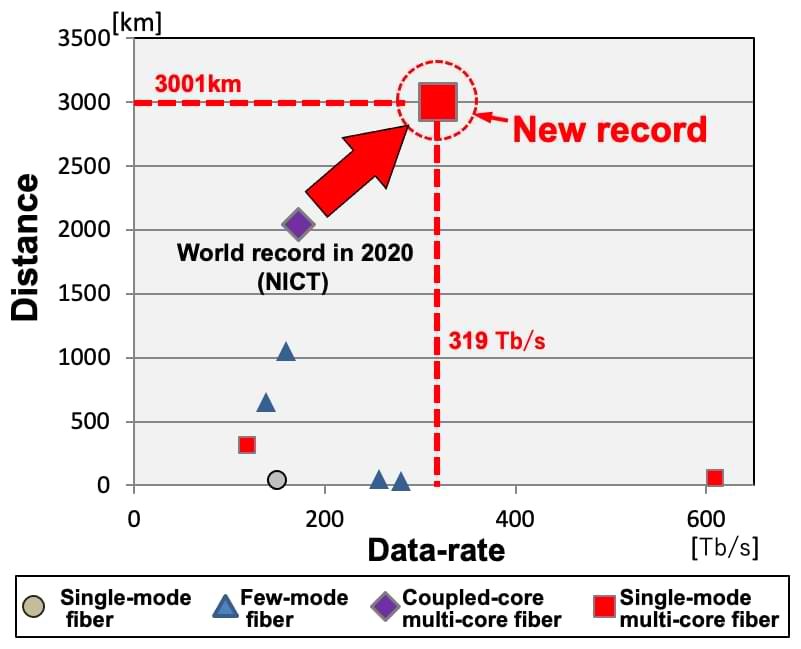We are living in an age where the speed of the internet is never sufficient. Japan has recently broken the speed of the internet with a new world record. While other companies like Facebook are trying to expand the high-speed internet to all the areas.
Researchers at the National Institute of Information and Communications Technology (NICT) have developed a way to transfer data at this speed. They have developed a new 4-core optical fiber that has delivered internet speeds of up to a whopping 319 terabytes per second (Tbps). The previous record was in August at the speed of 178 Tbps. NICT has revealed in a post stating the new world record for the fastest speed of internet ever.
To achieve this speed NICT has built a new 4-core optical fiber with standard cladding diameter. They have managed to add three more cores to the present standard optical fiber. This transmission was done over a long distance of 3001 km by the adoption of both erbium and thulium-doped fiber amplifiers. NICT also mentions during this transmission there was no deterioration of data nor the speed of the internet was slow.
NICT in the post mentions in the future it is looking to develop wideband long-distance transmission systems. Now with this speed what is possible is the question that most will ask. Well, the answer is easy to transfer data over long distances within seconds of time. The speed that Japan has now set will be able to download 7000 high definition movies in a second according to Engadget. This means that you can have all the Netflix movies in just less than a second.
This kind of speed coming to a real-world will be taking time and a lot of expenses. The new 4 core optical fiber also does need a lot of refinement before coming to the real world. The good news though is that the cladding for the fiber line is still the standard. This means it can be supported by the existing infrastructure.
So that’s been it. Thank you for reading, and do share the article if you get a bit piece of information. Also, keep an eye on this space for more relevant updates. Stay safe, and we hope to see you around.





